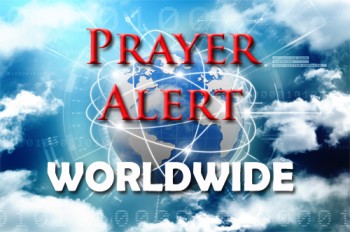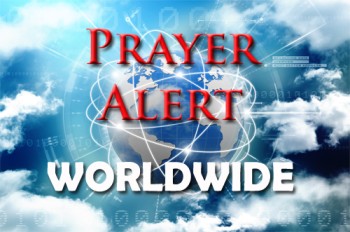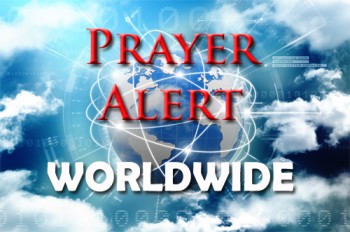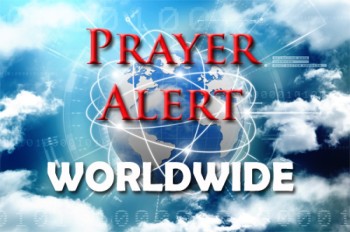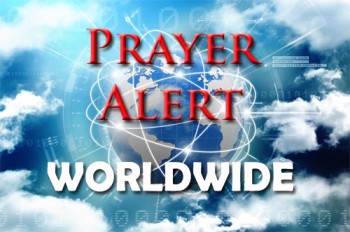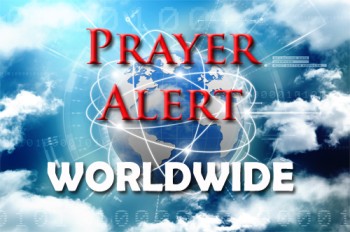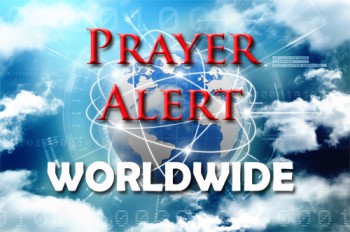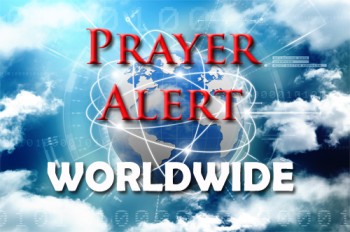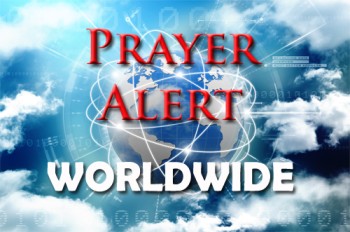Displaying items by tag: Australia
Australia: shock and grief after mass shooting on Bondi Beach
Australia is mourning and in shock after a mass shooting at a Hanukkah celebration on Sydney’s Bondi Beach on 14 December left 15 people dead and dozens wounded. Police have charged 24-year-old Naveed Akram with 59 offences, including fifteen counts of murder and a terrorism charge; he is said to have carried out the attack alongside his father, Sajid Akram, who was killed at the scene by police. The shooting targeted a Jewish community event on the beach marking the start of Hanukkah. As funerals and vigils were held, grief-stricken families remembered victims, including Rabbi Eli Schlanger, who organised the event, and ten-year-old Matilda, whose name has become a symbol of innocent loss. Authorities say the attackers had recently travelled to Davao City in the Philippines, an area associated with extremist Islamic ideology. The government is under pressure because the men were legally able to acquire the high-powered weapons used in the attack; prime minister Anthony Albanese has vowed to toughen the country’s gun laws, and to work with the Jewish community to ‘stamp out and eradicate antisemitism’.
Australia: under-16s prepare for social media ban
The impending ban on social media access for under-16s in Australia has sparked confusion, concern, and debate among students, parents, experts, and global observers. From 10 December, platforms such as Instagram, TikTok, Snapchat, YouTube, and others must demonstrate effective age verification or face major fines. Schools are scrambling to prepare teens for losing access to their accounts, photos, and online communities. Tech companies are rolling out facial age-estimation tools and other verification methods, though questions remain about accuracy and accessibility for older teens. Many young content creators fear losing hard-won followings, while others, like students at phone-free leadership programmes, describe unexpected freedom and richer real-life connections. Advocates warn that some teens rely on social media for support networks and could be pushed toward more dangerous spaces. The policy, inspired partly by concerns over youth mental health, has drawn both strong political backing and legal challenges claiming that it restricts young people’s rights. Other nations are watching closely as similar proposals emerge worldwide.
Venezuela closes embassy in Norway following the Nobel Peace Prize award
Venezuela has announced it will close its embassies in Norway and Australia, days after opposition leader María Corina Machado was awarded the Nobel Peace Prize. The move, confirmed by Norway’s foreign ministry, came without explanation but follows years of diplomatic tension between Nicolás Maduro’s government and Western nations. Norway expressed regret at the decision, emphasising that the Nobel committee operates independently of its government. Machado, who remains in hiding, received the Peace Prize for her “extraordinary examples of civilian courage’. She dedicated the award to Donald Trump and the ‘suffering people of Venezuela’. Barred from last year’s disputed election, she remains a powerful symbol of resistance to Maduro’s rule. The closures underscore Venezuela’s shifting alliances amid growing isolation from democratic nations. For the White House’s reaction to the Peace Prize award, see
Hong Kong: UK and Australia each grant asylum to a pro-democracy activist
Australia and the UK have each granted asylum to a prominent Hong Kong pro-democracy activist. In 2020, lawmaker Ted Hui threw rotten plants on the floor of the legislative council chamber to protest against the sweeping new national security law. Facing arrest for leading anti-government protests, he fled with his family to Australia, where they have now been granted protection visas. Student leader Tony Chung left in 2023, citing ‘enormous stress’ from constant police scrutiny. He was later convicted under the national security law for calling for Hong Kong’s secession, but has now received refugee status and a five-year residence permit in the UK. The Hong Kong government has strongly condemned the UK and Australia for ‘harbouring offenders’, stating that its arrests are based on ‘facts and evidence’ rather than politics. Critics, however, maintain that the law is being used to silence dissent and spread fear.
Australia: vital defence pact under threat
The critical Aukus defence pact, agreed by Australia in 2021 with the USA and UK, to acquire nuclear-powered submarines, faces uncertainty as Donald Trump’s administration reviews its alignment with the ‘America First’ agenda. Valued at over $230 billion, Aukus promises Australia a strategic leap in military capability. However, some US officials are sceptical about the value of sharing its premier defence technology, and have cast doubt on allies ‘pulling their weight’. Australia's leaders are publicly calm, but anxieties are growing. Some warn that the deal was always fragile, while others urge Australia to reassess its dependence on the USA. With the Pentagon citing domestic submarine shortages and economic priorities, questions loom over whether Australia will ever receive the promised Virginia-class subs. Despite the turbulence, the alliance's strategic value in countering China remains. Experts argue that Australia could still defend itself independently, given its geography and resources, but emotional ties to the USA and fear of abandonment persist in national defence thinking.
Australia: Albanese secures re-election with landslide majority
Anthony Albanese has defied the ‘incumbency curse’, securing a historic landslide re-election for Australia’s Labour Party. At the start of the year polls had put Albanese's popularity at record lows, but he led a disciplined campaign focused on cost-of-living concerns, healthcare, housing, and reconciliation with Indigenous Australians. Voters rejected the opposition’s Trump-style campaign led by Peter Dutton, who lost his own seat amid policy missteps and failed attempts to rebrand. With Labour projected to gain 86 seats, and the conservative Liberal-National Coalition reduced to around 40, Albanese becomes the first Australian leader in over twenty years to win back-to-back elections. He now faces pressure to act boldly on climate change, Indigenous reconciliation, and economic reform. International leaders welcomed the result, but there are now questions about whether Labour will now use its strong mandate to pursue lasting change. The campaign’s tone and outcome suggest Australians have chosen stability over polarising rhetoric and disruption.
Australia: two beaches closed due to toxic foam
Two beaches in South Australia have been closed after dead fish and an off-white foam appeared onshore, while surfers reported feeling unwell. Authorities suspect that a microalgal bloom, fuelled by unusual weather, has caused these problems. Environmental scientist Sam Gaylard called the event ‘concerning’ due to its scale. The two beaches, south of Adelaide, were shut down on 17 March. Surfers reported symptoms like sore eyes, throats, and coughing. Marine scientists have collected foam samples, though identifying the organism may take days. It is not certain how long this situation will last: the algae, probably triggered by extended hot, dry weather and calm seas, might be dispersed by increasing swells.
Australia: first man with artificial heart is discharged from hospital
A medical milestone has been achieved: the first patient implanted with a durable artificial heart has been discharged from hospital. BiVACOR, a titanium mechanical blood pump, was successfully implanted in a man suffering from severe heart failure. Performed at St Vincent’s Hospital in Sydney, the six-hour surgery marked a breakthrough in cardiac care. Designed to function indefinitely, BiVACOR operates using magnets to eliminate mechanical wear. Queensland-born inventor Daniel Timms spent years developing the device, inspired by childhood experiences working with his father, who later died of heart failure. The patient, previously too weak to walk, lived with the device for over 100 days before receiving a human heart transplant. Doctors anticipate BiVACOR could eventually replace the need for human donors. With more implants planned, this innovation offers new hope to those awaiting transplants.
Australia: couple sentenced for refusing medication to daughter
A court has sentenced Jason and Elizabeth Struhs, members of a sect called The Saints, to 14 years in prison for manslaughter after they denied their eight-year-old daughter, Elizabeth, lifesaving insulin. This resulted in her painful death from diabetic ketoacidosis in January 2022. The sect, led by Brendan Stevens - who received a 13-year sentence - believed in divine healing and rejected modern medicine. Instead of seeking treatment, members prayed and sang as the child suffered. The authorities were only notified 36 hours after her death. Eleven others received six-to-nine-year sentences for their role in the tragedy. Although they claimed religious persecution, the court ruled their faith-based negligence was criminal. Elizabeth’s sister, Jayde, had left the sect years before, condemning its extreme beliefs. The case highlights the dangers of religious extremism and the necessity of medical care in preserving life.
Australia: Scores of whales to be euthanised after mass stranding
Authorities plan to euthanise around ninety false killer whales after a mass stranding on a remote Tasmanian beach. A total of 157 whales beached near Arthur River; many died soon afterwards. Rescuers attempted to refloat two survivors, but rough conditions and strong currents prevented their return to the ocean. False killer whales, one of the world's largest dolphin species, have not stranded in Tasmania for over fifty years. The extremely difficult terrain and treacherous conditions made large-scale rescue efforts impossible, leading to the heartbreaking decision to euthanise the remaining survivors. Eyewitnesses described the scene as horrific, with stranded whales calling out for help. Authorities are now considering how to dispose of the carcasses, respecting the cultural heritage of the site. Experts believe that whales can become disoriented while hunting fish or following a leader into shallow waters. Over 80% of Australian whale strandings occur in Tasmania.
